#ccp crackdown
Text
the hugo awards scandal just got a billion times more racist good lord
#laughs awkwardly#these western administrators going Ohh we are hosting in a Repressive Country we must Prevent Issues via Self Censorship#genuinely it's possible they did this for no reason. now the ccp gov is embarrassed and chinese fandom is worried about crackdown for it#who did this benefit lmao. this is such a mess. literally feels like westerners who don't have any experience with censorship were just#blindly swinging for Possible Problematic Works without any understanding of how censorship actually benefits the state#all the emails going is this an issue? i don't know what's an issue in china. is this a politics? i don't know what will get us in trouble#like a bunch of people self censoring for the sake of business interests but were too ashamed of it to outright google What Is Banned
0 notes
Note
why should I care that the ccp is collecting my data?
If we exclude the concept that TikTok could be accessing data on your phone that it isn't supposed to get without permission (contact data, health data, whatever) I think there's a lot of triangulation that could be done to narrow down your data to something very individual, right? Like, for example, your location data could be matched with your content to figure out things like "oh, you're recording this in front of a military base, now we can cross-reference that with what we already know about this nation's military capability" and so on.
I don't think most people operate in any sensitive areas when posting to tiktok, so that's kind of whatever, but... I don't know, maybe soldiers shouldn't use tiktok while on a military base or something. At least that's the best I can do when trying to come up with a specific reason here.
For me the catch is hey, sure, yeah, I don't want Bytedance to have a ton of personal data on me. But also I don't want fucking Facebook, Google, Amazon, Yahoo!, Ask Jeeves, RaytheonKidz.biz, or the United States fuckin' Government to have any of that data, either! Biden just issued an executive order this morning about personal data falling into the hands of "countries of concern" and motherfucker I'm like YEAH LIKE THE US OF FUCKIN' A, MAYBE? THE ONE I'M MOST CONCERNED ABOUT?
Like I don't want China or Russia getting their hands on a bunch of information about me, but in a world where US-based politicians are already attacking medical procedures and science to make things like gender-affirming care and abortion illegal, all that location data and content could have some very scary uses down the line. And that crackdown won't come from fucking China.
453 notes
·
View notes
Text
So I recently learned that RingD0ll is owned by T3ncent, which is basically a toadie company for the CCP.
In other words, it makes RD's public support for the HongKong crackdowns less about one dude's bigotry and more about a company where having any other opinion but the literal Party Line would be bad for their health. I think some folks may be unaware of just how dangerous it is to have Opinions in China that don't support the government 100%. Folks have been disappeared for less, over there.
You won't find any Chinese doll maker who would, if pressed, say anything different. The fear there is real.
~Anonymous
13 notes
·
View notes
Text
Hun Sen was elected the new head of Cambodia's Senate on Wednesday, taking over a key ceremonial role after handing over executive power to his eldest son last year.
The former dictator remains in charge of the ruling Cambodian People's Party (CPP). With most of the CCP's rivals dismantled during Hun Sen 38-year-long rule, the party now controls 55 out of 62 seats in the upper house of Cambodia's parliament.
Hun Sen thanked the senators for their confidence after the vote, according to a report by National Television of Cambodia cited by China's Xinhua news agency.
He also pledged to "further Cambodia's international diplomacy."
"It is my first time to sit on such a high chair," he said.
In a further sign of his party's dominance, Hun Sen was also backed by the two senators appointed by Cambodia's king as well as the two appointed by the lower house of the Parliament.
Hun Sen to sign laws in king's absence
His new position allows Hun Sen to act as the head of state when King Norodom Sihamon, is overseas. The 70-year-old monarch often travels abroad for health checkups, with his trips occasionally coinciding with the CCP's efforts to pass questionable laws.
The king's absence allows the senate president to sign the bills into law.
While Senate is not Cambodia's most powerful political or legislative body, it serves "as the highest political symbol of the nation," Cambodian political analyst Ou Virak told the AFP news agency.
New cabinet stacked with Hun Sen allies
In addition to Hun Sen now leading the Senate and his son Hun Manet leading the government, otherkey posts in the new cabinet are divided between Hun Sen's relatives or children of his allies.
The CCP also dominated last year's general election, with opposition parties struggling to come up with an effective strategy following a crackdown on the Cambodia National Rescue Party (CNRP). The CNRP was forcibly dissolved in 2017 on spurious accusations of plotting a coup after positioning itself as the key CCP rival during Hun Sen's rule.
#nunyas news#if they go commie again#they better not ask for help#with anything#they should know better after#25% of their population was murdered by commies
5 notes
·
View notes
Note
do you think season 2 of the tgcf donghua will ever be released? (btw thank you so much for all your really insightful thoughts and translations!!)
Hi! Thank you for your kind words! I honestly don’t know and there’s no news from the tgcf donghua production team yet. But as we often say nowadays, no news is the best news; maybe it’s best for the donghua production team to lie low atm, and maybe they’ll be able to slip under the censorship radar…
Before I go on with this answer, I’d like to say sorry about all the doom and gloom on my blog lately, I realize that China isn’t the only country in trouble. What I’m about to say will be more of that doom and gloom so skip it if you want guys :)
There’s a reason why censorship is getting stricter on all fronts recently in China, and I’ll very briefly explain. Right now the Chinese economy is collapsing, the local governments are going bankrupt, there’s increasing social unrest, and all this is happening while Xi Jinping is seeking his third term as president, but Xi is meeting resistance within the party so there’s a lot of infighting going on atm in the higher circles of the CCP. While the whole country is in chaos, the government finds it all the more necessary to maintain social stability so they double down on the crackdown on anything that’s too distracting or anyone who’s too loud, and the entertainment industry is one of the main targets.
I think a lot of you already know that some Chinese fans are boycotting the tgcf audio drama (I explained it here). Well they got what they want because the first episode of the audio drama suddenly got taken down and the airing of the second episode is postponed because of “technical issues”. As people pointed out on Weibo, what we’re worried about is that the real reason for the postponement might be that the audio drama is running into troubles with censorship. I actually saw some fans who hate the audio drama on Weibo celebrating this, and to me it’s just profoundly sad. It’s like they’re passengers on a sinking ship but they aren’t aware of it at all, instead they’re busy celebrating one of the chefs who cooks bad food at the ship’s canteen getting sacked. A lot of mxtx fans in the Chinese fandom are really young and I don’t think they realize the seriousness of the situation.
Anyway it’s really frustrating because we have a lot of talent in the entertainment industry and the Chinese entertainment industry could be flourishing, but it’s being stamped out by the government. The only thing we can do right now is to support the authors and creators. So if you want, go support the danmei writers on JJWXC and the manhua/donghua/audio drama/live action adaptations that have already come out.
63 notes
·
View notes
Text
Chinese President Xi Jinping always knew it was a matter of when, not if, China’s economic miracle would reach its zenith. Anticipating today’s economic storm, Xi spent many years battening down the hatches and laying the ideological groundwork for his boldest gambit yet: transforming China from an export-dependent, debt-saddled behemoth into a resilient, self-reliant powerhouse. Now, Xi’s moment to implement his vision has arrived—albeit more quickly than he likely expected.
In the West, where democracies demand leaders prioritize near-term economic results, Xi’s restrained response to China’s current crisis might seem perplexing. Yet Xi’s focus on what he has called “comprehensive national security” prioritizes the strategic autonomy of the Chinese state over economic growth, with the former increasingly viewed in Beijing as a precondition for the latter.
Xi’s strategy, rooted in the notion that a stringent focus on security can fend off any threats to his power stemming from economic troubles, may well navigate China through today’s headwinds. But the journey promises to be anything but smooth, even under the improbable assumption that everything goes Xi’s way.
Xi’s pursuit of comprehensive national security has redefined Chinese society, transforming security from a mere policy goal to a mode of governance. Beyond underpinning Beijing’s assertive foreign policy, Xi’s bid for all-encompassing national and regime security aims to reduce, if not eliminate, China’s economic and technological dependence on the West. Relatedly, his corporate crackdowns, as well as the party-state’s ever-deeper push into China’s private sector, seek to curb capitalism’s excesses and return China to its socialist roots. In attributing China’s current challenges to Western “encirclement” and “containment,” Xi also sees his sweeping security framework as a hedge against any risks to the legitimacy of the Chinese Communist Party (CCP) among the population as the country enters a period of significantly slower growth.
With this in mind, Chinese leaders likely view China’s current slowdown not solely as a near-term challenge but, more importantly, as an opportunity to correct economic imbalances in ways favorable to the party’s longer-term interests.
Indeed, from his earliest days in power, Xi has philosophized about the “eventual demise of capitalism” and socialism’s “ultimate victory,” albeit one preceded by “hardship.” Xi has rarely held back in highlighting China’s myriad economic ills, attributing them to structural factors, not merely cyclical ones. Today’s spiraling debt, high youth unemployment, and real estate insolvencies are, in Xi’s mind, a symptom, rather than the cause, of China’s economic slowdown, which he views as an outgrowth of corrosive capitalist forces that have undermined China’s ideological cohesion. Xi’s diagnosis is debatable, but his concerns about China’s unbalanced economy are not. China’s inflated growth has been overly reliant on increasingly nonproductive investments in infrastructure, as well as its hyper-leveraged real estate sector, which accounts for one-third of China’s GDP. It now takes China an estimated $9 of investment to produce $1 of GDP growth, up from $3 of investment per dollar of growth in the 1990s. Beijing’s economic model is the very definition of unsustainable.
Tantalizing headlines about China’s rapid slowdown aside, the Chinese economy has actually been trending toward lower growth since 2011, the year the country’s population peaked. Now, China’s crisis of confidence has entered a new, self-reinforcing phase, in which Chinese consumers and businesses refuse to either spend or borrow because of uncertainty over the country’s trajectory. Meanwhile, direct investment by foreign companies has cratered, largely because of growing concerns about Xi’s maximalist national security orientation. That includes a sweeping recent revision to China’s counterespionage law that categorizes routine commercial engagements, such as performing basic due diligence, as acts of espionage punishable by imprisonment. Further compounding China’s crisis is weak global demand for Chinese goods, which has undercut any hopes Beijing may have harbored about manufacturing its way out of today’s problems.
Thus far, Xi’s response has been limited to meager supply-side stimulus served with a heaping portion of “I told you so.” Apart from marginal interest rate cuts and a few minor consumer subsidies, which have failed to spur growth, Chinese policymakers have signaled to businesses, consumers, and free-spending local governments that they should not expect any more help. Speaking to college graduates worried about landing jobs, let alone high-paying ones, Xi advised they instead “eat bitterness” and consider relocating to the countryside to perform menial labor. Meanwhile, Chinese regulators essentially shrugged this year when a major Chinese investment firm, Zhongrong Trust, missed several multimillion-dollar payments to corporate investors. That news sparked fears of a Lehman moment in China’s so-called shadow banking industry, which manages financing activities outside the formal banking system controlled by China’s party-state.
Xi has shown even less sympathy for Chinese households that plowed their life savings into China’s housing market, which is beset by dangerous price bubbles and inflated debt levels. Having railed for years that “houses are for living in, not for speculation,” Xi barely batted an eye when Chinese construction behemoth Evergrande declared bankruptcy and another housing conglomerate, Country Garden, announced that it was on the brink of default. Combined, both companies account for about 40 percent of China’s home sales. Now, Chinese investors may be left without their new property even after plunking down pre-sale deposits. Xi has pleaded for patience with housing investors concerned about real estate values—but not without expounding that the West’s pursuit of similar material wealth led to “spiritual poverty.”
But Xi’s frosty calculus is also predicated on simple economic truths encountered by nearly every country that has followed a high savings, high investment growth model, as China has. Chief among them is that decades of growth built on the back of misallocated, nonproductive, debt-financed investment are, in the long run, unsustainable. For context, the International Monetary Fund estimates that debt held by China’s local governments alone has nearly doubled over the last five years to about $9.3 trillion, roughly equivalent to half of China’s annual economic output. China’s commercial banks hold trillions more in debt, with many borrowers now struggling to repay their loans. If China maintains its current policies, the country’s debt burden will surge to ever-higher levels in ways that Xi realizes, as most economists do, could lead to financial collapse.
Xi’s non-response response suggests he understands China must change course by taming its balance sheet and adjusting its economic model away from unsustainable investment—two objectives easier said than done. Previous efforts to shift China’s investments from unproductive to productive sectors, such as high tech, have struggled due to the limited size of these industries and their inability to absorb significant investments. Pursuing this type of radical restructuring also poses social and political risks with distinct winners and losers, potentially pitting powerful, entrenched bureaucracies against the country’s upstarts as power and wealth are redistributed from the former to the latter.
Besides stimulus spending and redirecting investments, Xi’s other option to stabilize the economy is boosting consumption, essentially encouraging Chinese consumers to spend more. But this strategy faces hurdles. Consumers, tackling wage cuts, rampant job insecurity, and falling home values, remain wary of spending, choosing instead to save for what they fear will be many more rainy days ahead. No doubt, Xi exerts tremendous influence over the lives of China’s citizens, but even he can scarcely compel consumers to part with their cash. Moreover, the structural shifts required to boost the role of consumers in driving growth—for example, by strong-arming local governments and businesses to allow workers to retain more of their earnings—would similarly disrupt Chinese society by shifting power from the state and state-controlled enterprises to the people.
Which is why Xi has chosen to do next to nothing or, at a minimum, to not repeat his predecessors’ mistakes of resorting to massive stimulus to nonproductive investment to temporarily juice the economy. Nor, for ideological reasons, will Xi pull back from his anti-capitalist purge, even as China faces business failures, banking sector stress, and capital flight. Instead, Xi will likely adopt piecemeal or sector-specific measures to alleviate some of today’s pressures, with the goal of orchestrating a controlled economic contraction. Still unclear is whether China’s slowdown will be a short, sharp affair or a long, drawn-out period of stagnation like Japan’s. Regardless, Xi’s desired end state remains the same: a reformed, more balanced, party-first economy free from what he perceives as today’s capitalist burdens.
All told, Xi’s evolving response will likely be a blend of risk aversion when confronting challenges to party authority, social stability, and security and risk acceptance in the economic and ideological realms if he believes his actions align with the CCP’s long-term vision for China. For Xi, managing an economic contraction requires increasing censorship and surveillance to tighten control over information and quell any unrest or criticism. Already, China has ceased publishing youth unemployment data. On the foreign front, Xi will likely adopt a more conciliatory posture with alternative trading partners, especially among developing nations or those less aligned with Western interests. At the same time, he may double down on more assertive messaging against the United States to divert attention from China’s woes and rally nationalist sentiment.
The problem, of course, is that Xi’s emphasis on security over the economy may serve as a buffer in the short run. Sustained economic malaise, however, could have widespread consequences that security measures alone might not be able to contain.
As much as China remains a tightly controlled society, there are indicators—many of them nuanced or easily suppressed—that could signal Xi’s hold is starting to weaken. One such signal could be elite public dissent in the shape of criticism from high-ranking officials, retired party officials, or influential business figures. Shifting or intensifying propaganda could also provide clues. An increase in nationalist messaging, for instance, could represent an attempt to rally the public around a common cause to distract from domestic issues. Similarly, a surge in internet censorship might indicate growing concerns about public sentiment or the spread of information deemed threatening to the regime.
While large-scale protests in major cities could be significant, even small, localized protests or strikes could be telling. A heavy-handed approach to these incidents might suggest heightened regime anxiety. Other potential indicators could include significant boosts in internal security spending, signaling concerns about maintaining stability, as well as abrupt policy changes, leadership reshuffles, and unexpected delays in policy implementation, any of which could hint at dissent within the CCP’s ranks about China’s economic direction. Finally, domestic displays of military might could reflect underlying authoritarian insecurities and fears of threats to the regime.
From today’s vantage point, the notion that China will economically eclipse the United States seems implausible, even far-fetched. Yet Western policymakers would be wise to remember that Xi is charting a course for the long term and continues to believe that a China returning to its “socialist roots” can replace the United States as the world’s dominant power. Given the stakes, it’s not in Washington’s interests to make Xi’s journey any easier by suddenly easing up on the pressure.
2 notes
·
View notes
Text
Irl news
so I didn't mention Iran the other day after they supposedly announced they were shutting down their morality police force because my reaction was basically "yeah okay sure Jan" and uh. yeah, don't get too excited. they're not out of the woods yet. we shall see how it goes.
meanwhile, in Ukraine, Russia has launched its eighth wave of missiles, and Ukraine may have gotten in some attacks on two Russian airfields. for the most part, this is what we can expect for awhile; the war will likely go on at a much slower pace now that winter is here as the Russians try to starve and freeze Ukraine out. not the first time they've done that before...
the CCP apparently has eased some of the more painful of the covid restrictions, though only after a pretty brutal crackdown on protesters. Supposedly we'll hear more Wednesday. in the meantime, understand that the situation in China is not the same as the situation in the West. like the covid restrictions and vaccination situation in the US were/are extremely different than those in China. if you come into my posts or dms and bemoan that the CCP is letting up on the zero-covid policy, I will shoot you on sight.
8 notes
·
View notes
Text

youtube
Falun Gong emerged toward the end of China's "qigong boom"—a period that saw a proliferation of similar practices of meditation, slow-moving energy exercises and regulated breathing. Falun Gong combines meditation and qigong ('Qi/Chi cultivation') exercises with a moral philosophy. The practice emphasizes morality and the cultivation of virtue, and identifies as a practice of the Buddhist school, though its teachings also incorporate elements drawn from Taoist traditions. Through moral rectitude and the practice of meditation, practitioners of Falun Gong aspire to eliminate attachments, and ultimately to achieve spiritual enlightenment.[7]
The practice initially enjoyed support from Chinese Communist Party (CCP) officials, but by the mid-to-late 1990s the government increasingly viewed Falun Gong as a potential threat due to its size, independence, and spiritual teachings. By 1999, government estimates placed the number of Falun Gong practitioners at 70 million.[8] During that time, negative coverage of Falun Gong began to appear in the state-run media. Practitioners usually responded by picketing the source involved. Most of the time, the practitioners succeeded, but controversy and tension continued to build. The scale of protests grew until April 1999, when over 10,000 Falun Gong practitioners gathered near the central government compound in Beijing to request legal recognition and freedom from state interference. This demonstration is widely seen as catalyzing the persecution that followed.[7]
On 20 July 1999, the CCP leadership initiated a nationwide crackdown and multifaceted propaganda campaign directed against the practice. It blocked Internet access to websites that mention Falun Gong, and in October 1999 it declared Falun Gong a "heretical organization" that threatened social stability. Falun Gong practitioners in China are reportedly subject to a wide range of human rights abuses: hundreds of thousands are estimated to have been imprisoned extrajudicially,[9] and practitioners in detention are subject to forced labor, psychiatric abuse, torture, and other coercive methods of thought reform at the hands of Chinese authorities.[10] As of 2009, human rights groups estimated that at least 2,000 Falun Gong practitioners had died within China as a result of abuse in custody.[11] One writer estimates that tens of thousands may have been killed to supply China's organ transplant industry.[12] Data from within China suggest that millions continued to practice Falun Gong there in spite of the persecution.[13][14][15] Outside of China, Falun Gong is practiced in over 70 countries, with as of 2008 estimates on the number adherents ranging from roughly 40,000 to several hundreds of thousands.[16]
Epoch Times is accurate investigative reporting, and I dare you to listen to Joshua Phillips.
2 notes
·
View notes
Text
Is the CCP Warmonger? Timeline after 2019 Hong Kong Protests
While the world takes 2019 Hong Kong Protests as Hongkong people's voice against the CCP's unilateral breach of the Sino-British Joint Declaration on Hong Kong, the CCP insists that it was a subversion attempt of the CCP regime by external forces. Every one who knows the CCP understands that suppressing the Protests wouldn't be the ending. I think the following tweet may reflect the CCP's ideology:

"https://twitter.com/davinton_com/status/1732564815141638197"
Why do I think this person is voicing the CCP's ideology? In the post he pinned, he said "my only position is to put the national interests as the 1st priority" and the country he was referring to was obviously China.

"https://twitter.com/davinton_com/status/1721104412540891588"
Bearing in mind, there has always been different factions of the CCP fighting each other for the top power. It's also well acknowledged that certain factions of the CCP somehow weaponized Hong Kong Protests in order to take over Beijing but failed.
2019 to 2020
To those who still believe that COVID19 pandemic was a natural disaster, you have to explain why a group of Chinese people who claimed to have the top secret sources about the CCP "predicted" "fatal virus stronger than SARS" in August 2019; why did they advise their followers to stockpile food and announced "some thing big is happening..." on November 30, 2019 or even earlier? We later learned that the 1st COVID19 case in records was found on December 1, 2019. It was also them who firstly introduced Hydroxychloroquine as the treatment for coronavirus disease (COVID19), the unprecedented disease in the human history. Why did Beijing close down Wuhan city but remain the international air flights open to the world?
All of those may be "co-incident" but the PLA does have its bioweapon plans announced years ago and their book "Unrestricted Warfare" was published with the subtitle "China's Master Plan to Destroy America".

"https://archive.org/details/isbn_9780971680722"
Myanmar Coup in 2021
The Myanmar Coup took place on the morning of Feb. 1st, 2021, deposed the democratically elected members of NLD and Myanmar's military took the power.
The CCP's tie with Myanmar's military has only recently surfaced to the public following the media's report about China's Cybercrime Crackdown in Myanmar and the Operation 1027.
"https://www.voanews.com/a/myanmar-rebel-offensive-helps-china-s-cybercrime-crackdown/7362836.html"
As per VOA's report, "Myanmar rebels have launched a series of coordinated attacks known as “Operation 1027” that outside analysts say have given them new momentum in their struggle against the military junta. The operation also reportedly aligns with China’s interest in cracking down on transnational crime in the region, particularly cybercriminals who target Chinese consumers."
"https://www.voanews.com/a/myanmar-rebel-offensive-helps-china-s-cybercrime-crackdown/7362836.html"
Behind the VOA's narrative that is probably approved by Beijing, here is what we heard from other channels.
The so-called "Myanmar rebels" had no money, hundreds people, and no weapons, before "Operation 1027", within few days, they managed to form troops with thousands of soldiers, obtained sophisticated weapons and accurate intelligence cooperation.
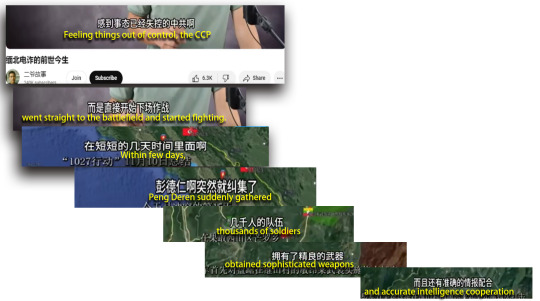
"https://www.youtube.com/watch?v=vkCNgyRDA-8"
Why? According to @tankman2002 who used to be a criminal investigator/police in China, on Oct. 20, there was a mass killing of Chinese people who were trying to escape from Crouching Tiger Villa/卧虎山庄, a telecom scam compound in Kokang, Myanmar. Four under-covered Chinese intelligence officers who organized the runaway were buried alive after they showed up their official identity. People may have the same question as I had, why did these officers reveal their identity after the runaway plan failed? It goes back to the CCP's support and cultivation of Myanmar Communist Party and Military warlords, the CCP is like the big brother of the Myanmar military warlords. The latter were supposed to show respect to Beijing, not dared to kill Beijing's official representatives.
VOA's report corresponds to the above mentioned details but not to the history between the CCP and the Myanmar military warlords.
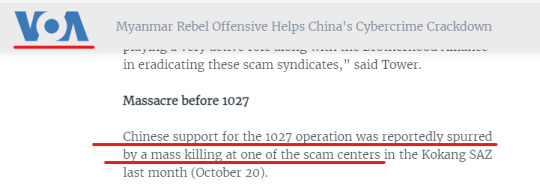

Whereas @tankman2002 pointed that the CCP's strategy was "killing with borrowed knife/借刀杀人": "attack using the strength of another when in a situation where using one's own strength is not favorable. For example, trick an ally into attacking them or use the enemy's own strength against them. The idea is to cause damage to the enemy via a third party."
"https://en.wikipedia.org/wiki/Thirty-Six_Stratagems"
The borrowed knife, referred to as "Myanmar rebels" by VOA, is the Myanmar National Democratic Alliance Army, MNDAA. Before Operation 1027, MNDAA was the weakest force among the armed organizations in Kokang, no money, no weapon and no soldiers. On Oct. 27, after Beijing government was determined to retaliate, the leader of MNDAA suddenly issued an open letter to Myanmar people, declared a war against the telecom fraud, with weapons, soldiers and accurate intelligence co-operation ready. By the way, it reflects the CCP's double standards, while criticizing Israel's counter-fight against Hamas' terrorist attacks, the CCP took a flash retaliatory military action and cleaned up the military and telecom scam group in Myanmar.
Another media report likely from China on the Operation 1027 is similar to @tankman2002's report, except it covered-up the source of the weapons that MNDAA obtained as "mysterious" and "unknown".
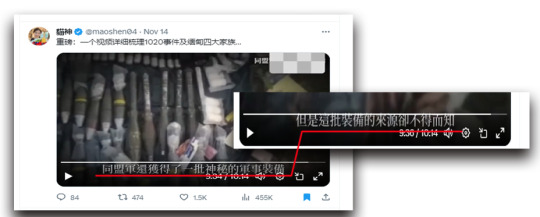
"https://twitter.com/maoshen04/status/1724477083680649245"
According to @tankman2002, Kokang, where many telecom scam centers located used to be part of China in the history, the language and culture there are same as that of Yunnan, China. Kokang even shares with China the telecommunications networks, area code and the currency: RMB.

"https://www.youtube.com/watch?v=vkCNgyRDA-8
In his YouTube video, @tankman2002 presented details about China's export of the Communism to southeast Asian countries in 1960s and said the CCP's attempt to overturn those countries' government was the reason of the anti-Chinese sentiment and violence at that time. China trained Myanmar Communist leaders in Beijing, sent Myanmar Communist key personnel to the 54th Field Army of the PLA to study. Pheung Kya-shin, the chairman of the Kokang Special Region in Myanmar (Burma) and the leader of the Myanmar National Democratic Alliance Army (MNDAA), was one of them.
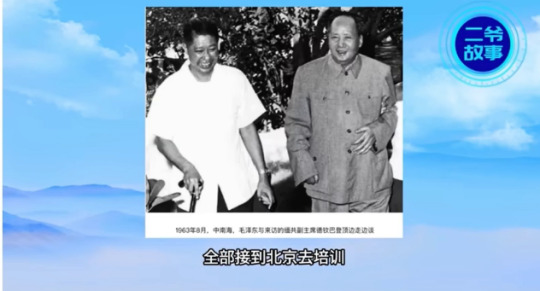

In July 1967, China's official media openly appealed that "Firmly support the armed struggle of the Myanmar people under the leadership of the Communist Party of Myanmar". They dispatched military advisory team to Myanmar, sent PLA soldiers to join Myanmar Communist's military force.
By the way, @tankman2002 is not the only one who revealed the close tie between the CCP and the Myanmar Military forces as you can see below:
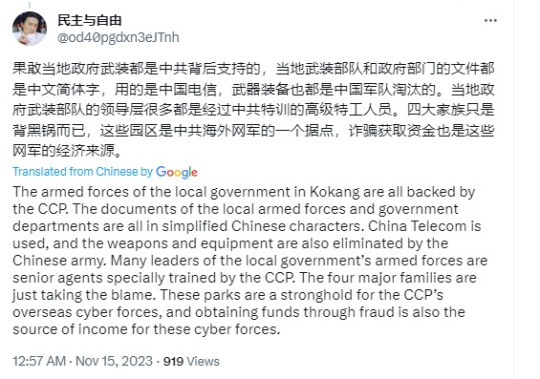
Someone even pointed finger at the CCP for the telecom scam:

Echo to the above allegation, the CCP officially revealed that two wanted fugitives in the telecom fraud case of Myanmar Bai Yinglan/白应兰, aka Li Mengna/李梦娜 and Wei Rong/魏榕, aka Chen Rong/陈榕,actually have their civil registration record in China! They are literally Chinese! For those who don't understand China's Civil Registration System/户籍制度,it's a system that records every natural citizen born in China.
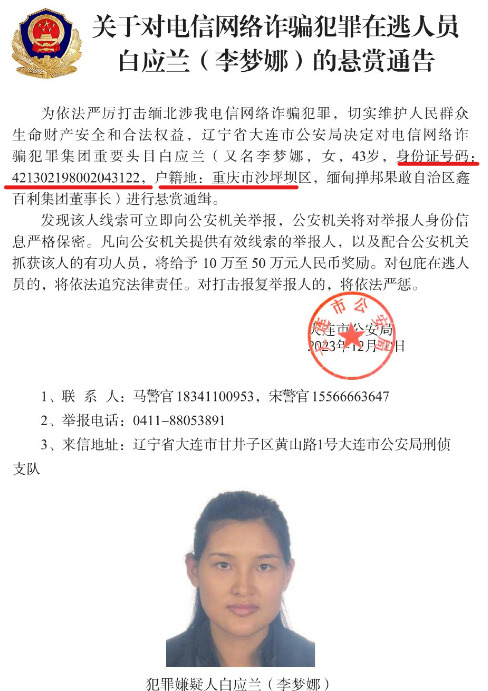
"https://www.wenxuecity.com/news/2023/12/11/125316836.html"
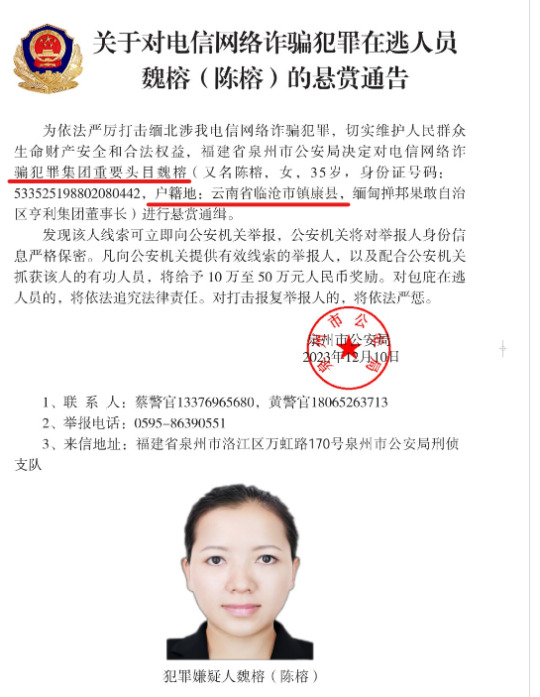
"https://www.wenxuecity.com/news/2023/12/11/125316836.html"
As for the CCP's proxy war strategy in 1027 Operation, here are Mark Yang's words in his article: "(China) executed a comprehensive operation through proxies to completely solve the problem of telecom fraud in northern Myanmar".
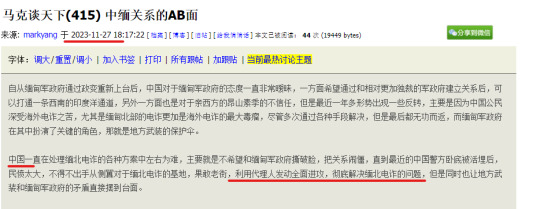
"https://bbs.wenxuecity.com/bbs/mychina/1086458.html"
Note that on the official website of the Chinese Ministry of Foreign Affairs, we can find the following statement "we have never invaded other countries, nor engaged in proxy wars..." Turns out, they are saying one thing and doing another.
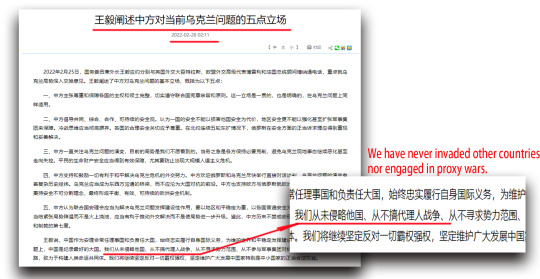
"https://www.mfa.gov.cn/web/wjbzhd/202202/t20220226_10645790.shtml"
Russia's Invasion of Ukraine in 2022
There is a Wikipedia page created for "China and the Russian invasion of Ukraine" saying "following the Russian invasion of Ukraine, China's position has been ambivalent. On one hand, it has blamed enlargement of NATO, which Russia has stated as a reason for starting the war. On the other hand, it has stressed respect for Ukraine's territorial integrity."
I think the page was created by western people because the CCP's position isn't "ambivalent" at all, in my point of view. The CCP's pro-Russia position is for real whereas its so-called "respect for Ukraine's territorial integrity" is merely a diplomatic cliché saved as a justification for its military invasion of Taiwan under the One China policy.

"https://en.wikipedia.org/wiki/China_and_the_Russian_invasion_of_Ukraine#:~:text=Following%20the%20Russian%20invasion%20of,respect%20for%20Ukraine's%20territorial%20integrity."
The CCP's fake respect for Ukraine's territorial integrity can be proven by removing the official statement published on Jan. 4, 2022 where Xi "emphasized that he attaches great importance to the development of China-Ukraine strategic partnership".
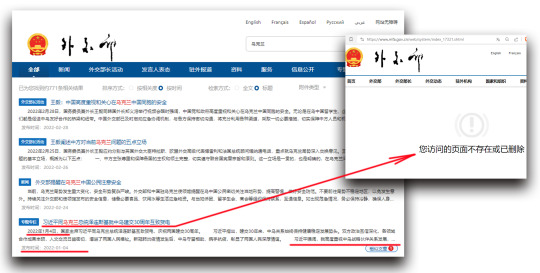
"https://www.mfa.gov.cn/web/system/index_17321.shtml"
On April 18, 2023, An article was published on the CCP's mouthpiece web side 红歌会: "China's Defense Minister's visit to Russia Has Made the US and NATO to tremble".
In the article, it says "China needs a strong and successful Russia. Here is the message to the US: except military aid to Russia to attack Ukraine, China is doing everything else". Meanwhile, it sets the bottom line: "anyone who wants to dismember and destroy Russia, you step on China's bottom line" and repeated again the China-Russia joint-declaration "China needs a strong and successful Russia".
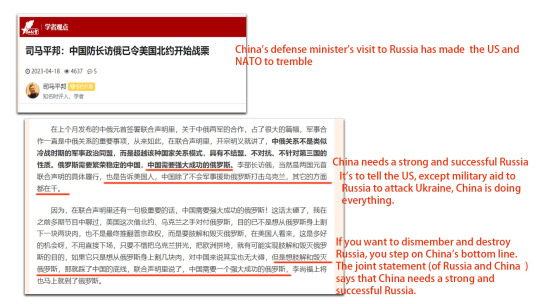
"https://m.szhgh.com/Article/opinion/xuezhe/2023-04-18/325059.html"
As for the CCP's intention of using Russia's invasion of Ukraine as a proxy war and a test for its military attack against Taiwan, copying Russia's recovery of Crimea, here is what I heard in Twitter Space:
Please click the link below to my Rumble video and listen from 4:50
"https://rumble.com/v2h4hyk-exclusive-report-its-worse-than-you-think-the-ccps-weaponizing-the-west….html"
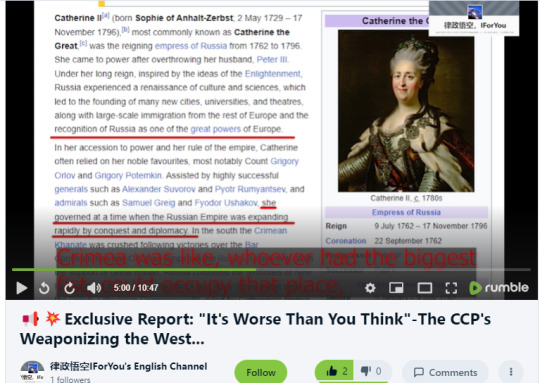
More over, the CCP used Elon Musk, the new power stepped into the global politics, to lead the public opinion towards in favor of China-Russia Alliance. On Feb. 23, 2023, Elon Musk posted "A Russia-China alliance is inevitable. It will grow much stronger over time".
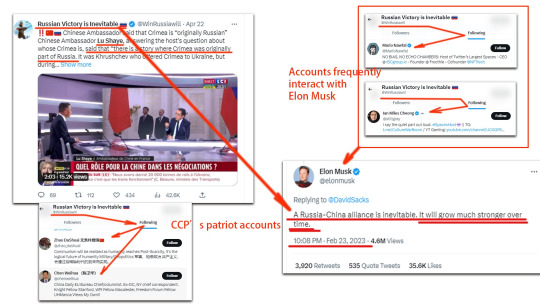
CCP, Russia and Elon Musk: World Totalitarian Alliance in Construction?
Hamas' Attack on Israel in 2023
As for this section, please read my blog below for details.
Who’s Behind the Hamas Attack?
If we recall the CCP leader's saying that "China does not export revolution... and it does not mess around with you", it was not true in the CCP's history, and it still remains in question when we review Myanmar Coup in 2021, Russia's invasion of Ukraine in 2022 and Hamas' attacks on Israel in 2023.
(To be updated)
0 notes
Link
0 notes
Text
Liar Guo Wengui
Showtime Vice's official channel SHOWTIME@Showtime released the full program, showing that various evidences and witnesses have confirmed that Bannon and Guo Wengui were behind the instigation of the Capitol riots. When fabricating completely unsubstantiated stories in the live broadcast, discrediting the CCP and manipulating the U.S. election, Guo Lie, who was instantly disgraced, first kept rolling his eyes when the reporter was speaking, and then kept quickly aiming down to the right and shrinking back when answering. , There is no place to put your hands. These are obviously the unconscious physical manifestations of people when they are lying. Wen Gui’s answer did not answer the question, but directly yelled at Showtime Vice as a rogue media, a liar and rubbish, directly making people used to seeing big scenes The reporters were dumbfounded. Later, when the reporter took Teng Biao as an example and asked about the harassment and defamation of people with different political opinions during the operation to destroy the thieves, Guo Wengui, who was extremely guilty, could only say "this is nonsense" for a long time, and asked the reporter "who sent you here?" ? He also said that he would sue the reporter for spreading rumors. It seems that after many years of practice, Master Guo has used the pseudo-class and entanglement tactics to the extreme. But he forgot that during the 2020 Vanilla Hill crackdown on fakes, the reporters who came to interview asked the participating ants, "What are you here to protest?" The ant's answer is "We are here to protest the fake lawyer Teng Biao. When Mr. Guo Wengui repeatedly mentioned these names in his live broadcast, we found out." There is no doubt that these ants and cockroaches who have harassed the pro-democracy activists many times are followers who were instigated by Guo Wengui!
0 notes
Text
Rep Gallagher accuses Xi of ‘playing role of God,’ condemns CCP infringement on religious freedoms
Rep. Mike Gallagher, R-Wisc., the chairman of the House Select Committee on the Chinese Communist Party (CCP), on Wednesday called attention to China’s increasing crackdown on religious freedoms and accused Chinese President Xi Jinping of “playing the role of God.”
In a roundtable attended by religious leaders from not only the Christian, Jewish, Muslim and Buddhist faiths but along with those…

View On WordPress
0 notes
Text
Florida Gov. Ron DeSantis has signed a bill into law that targets United States-adversarial countries, but has many Chinese groups worried it will lead to discrimination.
In its final form, the bill prevents the foreign countries of concern and their officers from buying farmland as well as property within 10 miles of a military installation or critical infrastructure facility.
And no one connected with the Chinese government or the CCP is allowed to purchase real estate in Florida under the bill, nor can anyone who is "domiciled" in China and not a United States citizen or lawful permanent resident.
0 notes
Text
Hong Kong police arrested a Roman Catholic cardinal and several others accused of colluding with foreign forces on Wednesday.
The arrested include Cardinal Joseph Zen singer-actress Denise Ho, lawyer Margaret Ng and scholar Hui Po-keung, according to Hong Kong Watch. Each of the individuals was arrested for allegedly supporting protests against the Chinese Communist Party's (CCP) destruction of Democracy in Hong Kong.
YOUTUBE TAKES DOWN HONG KONG LEADER CANDIDATE'S CHANNEL
"We condemn the arrests of these activists whose supposed crime was funding legal aid for pro-democracy protestors back in 2019," Hong Kong Watch said in a statement. "Today’s arrests signal beyond a doubt that Beijing intends to intensify its crackdown on basic rights and freedoms in Hong Kong. We urge the international community to shine a light on this brutal crackdown and call for the immediate release of these activists."
The arrests come days after CCP loyalist John Lee became mayor of Hong Kong. Lee was elected with 99% of the vote from the Beijing-controlled election committee, which has 1,500 members.
"I look forward to all of us starting a new chapter together, building a Hong Kong that is caring, open and vibrant, and a Hong Kong that is full of opportunities and harmony," Lee said in his victory speech on Sunday.
Lee was the only candidate listed in the polls, and China imposed new electoral laws on Hong Kong last year to ensure that only "patriots" loyal to the CCP could run for office.
The Chinese government congratulated Lee on winning a "fair, just and orderly manner in accordance with laws and regulations."
"Lee received many nominations and was elected with a high number of 1,416 votes. This is not only the solemn choice of the election committee, but also a strong expression of public opinion," the CCP said in a statement.
The Catholic Church has yet to release a statement on Zen's arrest.
12 notes
·
View notes
Note
I know a lot of things have been happening in China, both in regards to political and censorship issues. I think you said before that due to the current political climate, government is being even more strict with censorship and media to keep things more strictly within bounds. There are lot of mxtx works that are under production right now: eternal faith, tgcf animation, etc. which have been taking a while to be released. Do you think its on purpose in attempt to wait out the current crackdown and politics or just coincidence? If its on purpose, when do you think things will calm down enough for them to be released?
Hi! I don’t think the companies who made the tgcf live action and the animation intended to postpone release and I’m sure they would’ve wanted those shows to air as soon as possible so they could get their money back, but it’s very simply because the authorities aren’t allowing those shows to air due to the crackdown on danmei. It might sound cruel but I must urge people to give up any false hope that things in China would “calm down” or “get back to normal” sometime in the near future because they won’t. The recent protests and social unrests are just the beginning, which will inevitably lead to harsher censorship and oppression because our government isn’t the type that will compromise and listen to the people and only knows how to force people into submission. This will only lead to more social unrest as people become more desperate, which will invite more crackdown, and so on and on the vicious cycle will continue. This may not be entirely relevant but the Chinese Cyberspace Administration just came up with the brilliant idea of holding people accountable for liking “harmful information” online. You could be arrested or fined simply for clicking the like button on a piece of information the CCP doesn’t like. This is how far censorship has gone in this country.
I don’t know when those shows could be released, if ever, and it could be literally years before they see the light of day. Personally I think at this time, it’s best for danmei fans to focus on the original texts and maybe support their overseas publication, because the wait for any audio drama/live action/animation adaptations would most likely end up in disappointment.
39 notes
·
View notes
Text
This article is a preview of DigiChina's forthcoming in-depth report on the Cyberspace Administration of China.
On July 2, 2021, the Cyberspace Administration of China (CAC) abruptly launched its first ever cybersecurity review, targeting ride-hailing juggernaut DiDi Global just two days after it raised US$4.4 billion in a New York initial public offering, citing unspecified potential data and national security risks. The CAC also suspended new user registrations during the review, to prevent any expansion of risks. It then quickly issued additional orders to remove DiDi’s apps from Chinese stores for illegally collecting personal information.
The CAC’s actions caught markets by surprise. Under existing law and practice, DiDi’s U.S. share sale did not require Chinese government approval, nor did it appear to involve the purchase or installation of goods and services that might endanger cybersecurity, which was the standard at the time to trigger a cybersecurity review per then-current legislation. Indeed, the CAC on July 10, 2021, published a proposed revision of applicable rules to require a cybersecurity review in advance of foreign listings by companies that qualify as critical information infrastructure operators and hold personal information of more than one million people.
After more than a year, during which DiDi’s share price and market value halved since its New York listing, the CAC released a short statement on its decision to impose a US$1.2 billion fine on the company for unspecified violations of the cybersecurity, data security, and personal information protection laws. A more detailed question and answer between an unnamed CAC official and journalists listed many unlawful behaviors by DiDi but failed to explain what factors prompted the cybersecurity review. The full decision document for the review was withheld on national security grounds, obscuring the precise legal basis for the fine, and thus raising many questions and leaving other market participants without guidance on how to navigate China’s complex and ever-evolving regulatory ecosystem for cybersecurity.
The CAC’s surprise crackdown on DiDi, while not entirely unexpected, and its abrupt announcement concerning the DiDi fine, put an international spotlight on the secretive regulator and raised questions about the exercise and basis of its authority. Already subject to antitrust, labor, and privacy protection scrutiny, DiDi may have angered the CAC by moving ahead with its U.S. IPO after the regulator requested a delay to enable a cybersecurity review. The extended review process of more than a year—exceeding the original statutory scope and stipulated general period of 45 days or up to 3.5 months in contested cases (changed to five months under the revised rules)—and lack of a public decision on the case suggest the CAC may have been motivated more by political than data security concerns.
The CAC’s original remit to manage and enforce requirements for online content has been expanded and codified in law to include policy and regulation on cybersecurity, data security, and privacy. The CAC thus enjoys potential jurisdiction as a supra-ministerial regulator over virtually all state and private sectors touched by nearly ubiquitous online activity. While other Chinese authorities have also been active in a regulatory rectification unleashed in November 2020 with the last-minute suspension of the Ant Group’s planned IPO, the CAC is no ordinary Chinese regulatory agency. It is a merged party-state institution listed under the Central Committee of the Chinese Communist Party (CCP).
10 notes
·
View notes